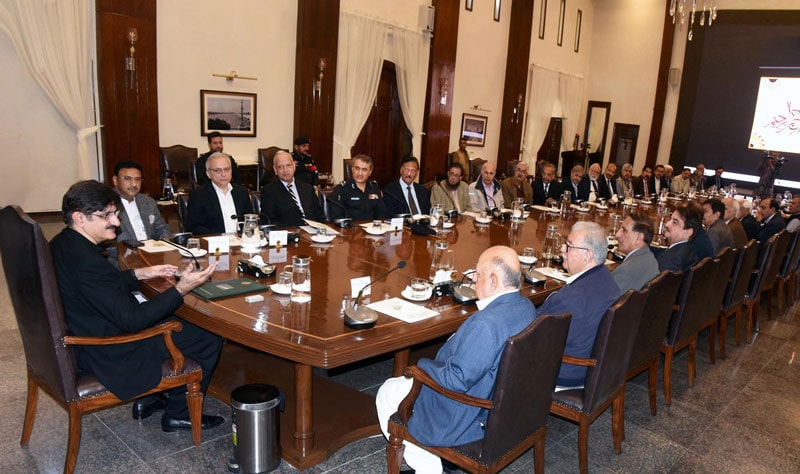Sindh Chief Minister Syed Murad Ali Shah has reaffirmed his commitment to transforming policing in the province through increased funding, advanced training, and fostering public trust. In a meeting with members of the Association of Former Inspector General of Police (AFIGP), led by its President Afzal Shigri, the chief minister hosted discussions on key issues within the police service at the CM House.
Attendees included Home Minister Ziaul Hassan Lanjar, Principal Secretary Agha Wasif, and IG Police Ghulam Nabi Memon. The discussion revolved around enhancing governance, accountability, and granting greater functional autonomy to the police force. Murad Ali Shah stressed the need for public trust through improved accountability and strict adherence to jurisdictional boundaries, while also pushing for functional independence to mitigate inter-agency conflicts.
Highlighting structural issues, Shah pointed out a shift in the power dynamic between civil services and the police since 2002. “Restoring balance and cooperation among agencies is essential,” he remarked. The chief minister announced progress in establishing a cutting-edge forensic laboratory in Sindh. He noted that funding was not a concern but highlighted the shortage of skilled human resources. “Directives have been issued to engage experts from the market,” he stated. Former IGPs proposed empowering constables by improving literacy, IT, and investigative skills, allowing them to handle investigations at their level. Shah acknowledged the need and shared that financial empowerment at police station levels has already been initiated. The meeting also discussed the establishment of a Centralised Resource Management System (RMS) to log and monitor complaints. Non-police officials could be tasked with registering complaints to ensure impartiality, enhancing accountability. Shah supported the idea, calling it a vital step forward. Discussions touched upon adopting urban policing models similar to Scotland Yard, incorporating advanced crime detection and victim support frameworks. Shah encouraged former IGPs to submit recommendations to adapt this system to Sindh’s requirements.
The ongoing dispute over 150 acres of land allocated to Sindh Police in Hyderabad since 1972 was also reviewed. Additionally, plans for improving Karachi’s traffic management and expanding Citizen-Police Liaison Committees (CPLC) to other cities were discussed. The former IGPs praised the Sindh government for introducing medical insurance for police personnel and their families, calling it a pioneering initiative for Pakistan. Afzal Shigri expressed gratitude for Shah’s efforts, emphasizing that this collaborative approach marks a step towards enhancing public safety and trust.










